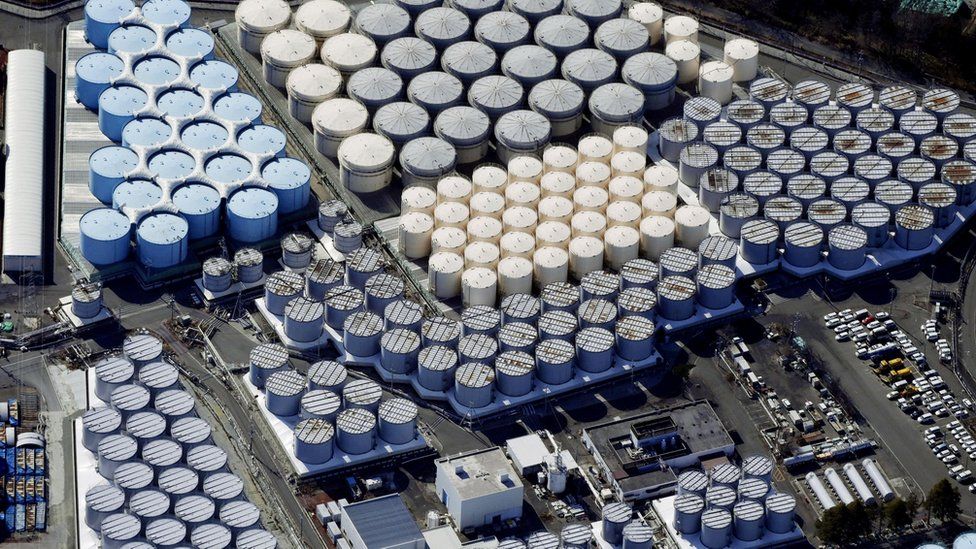



Japan is running out of space to store waste water from Fukushima
The International Atomic Energy Agency says the release will have a "negligible" impact on the environment.
The Fukushima facility is running out of storage space for the water, which was used to cool nuclear reactors.
Japan's plan has been opposed by China and South Korea.
Tokyo has not announced a schedule for the release and the plan still needs approval from a regulator.
In 2011, a tsunami triggered by a magnitude 9.0 earthquake flooded three reactors of the Fukushima Daiichi Nuclear Power Plant. It is regarded as the world's worst nuclear disaster since Chernobyl.
More than 150,000 people were evacuated from an exclusion zone around the plant, which remains in place. Decommissioning of the plant has also started, but the process could take decades.
IAEA chief Rafael Grossi released the findings of a two-year safety review on Tuesday, describing it as impartial and scientific. He also vowed to continue engaging with Japan after the water is discharged.
In May, the agency said Fukushima operator Tokyo Electric Power (Tepco) had shown its ability to make "accurate and precise measurements" of the amount of radiation present in the treated water. A final approval from Tepco could come as early as this week.
The plant produces 100 cubic metres of waste water daily. Tanks on site can hold 1.3 million cubic metres.
Most radioactive elements have been filtered from the water, except for radioactive forms of hydrogen and carbon - called tritium and carbon 14, respectively. The two isotopes are difficult to separate from water.
Tokyo has said the water that will be released into the Pacific Ocean, which has been mixed with seawater, have tritium and carbon 14 levels that meet safety standards.
Nuclear power plants around the world regularly release waste water with tritium levels above that of the treated water from Fukushima.
But the IAEA's finding will do very little to ease the concerns of the Japanese public and neighbouring countries.
China had already strongly criticised Japan's plan and warned the IAEA against endorsing it.
South Koreans, on the other hand, have stocked up on sea salt ahead of the water's release, amid food safety fears.
Local fishing communities have also fiercely objected, saying it will cause further damage to their reputation.
-- Courtesy of BBC News